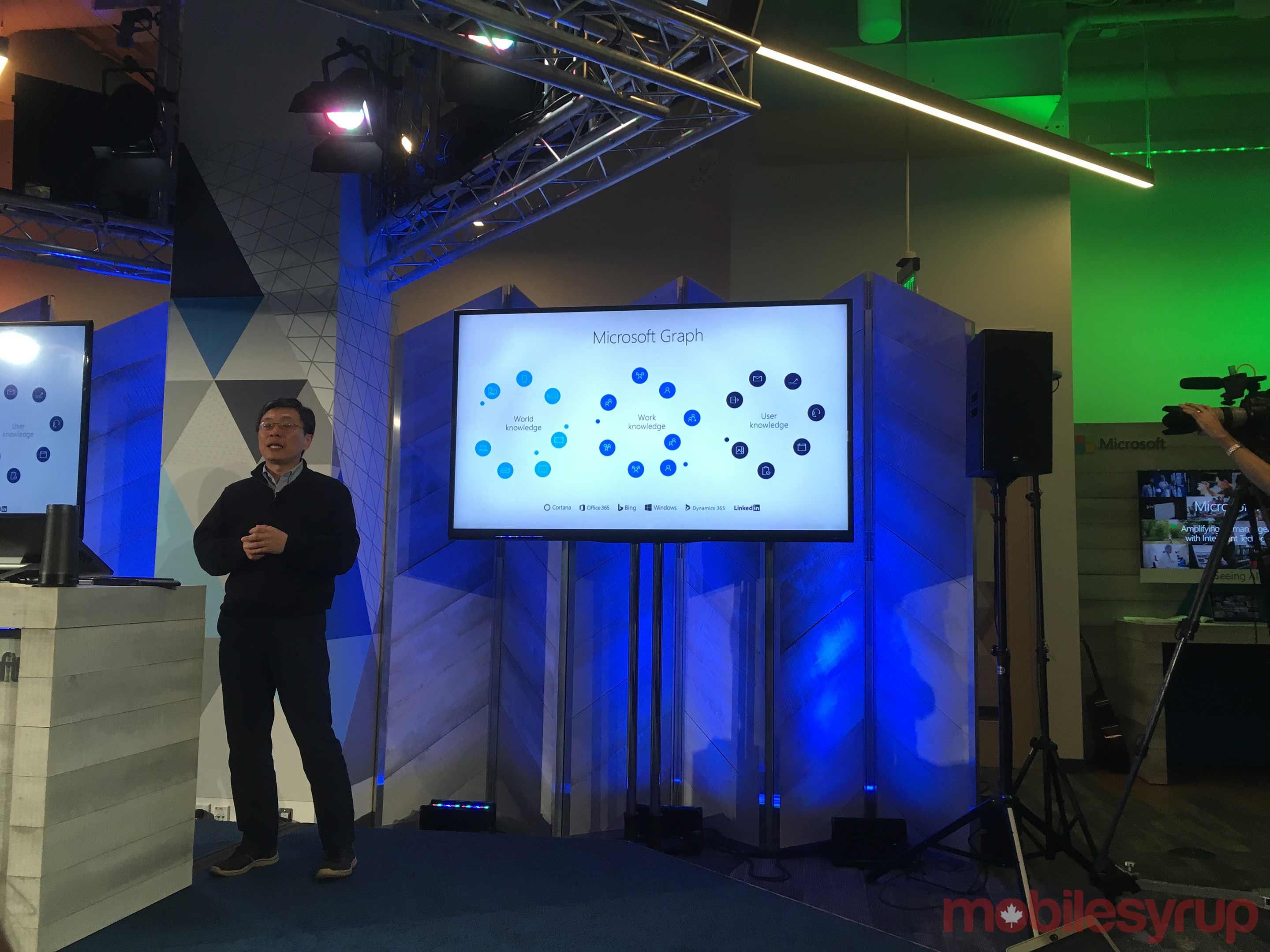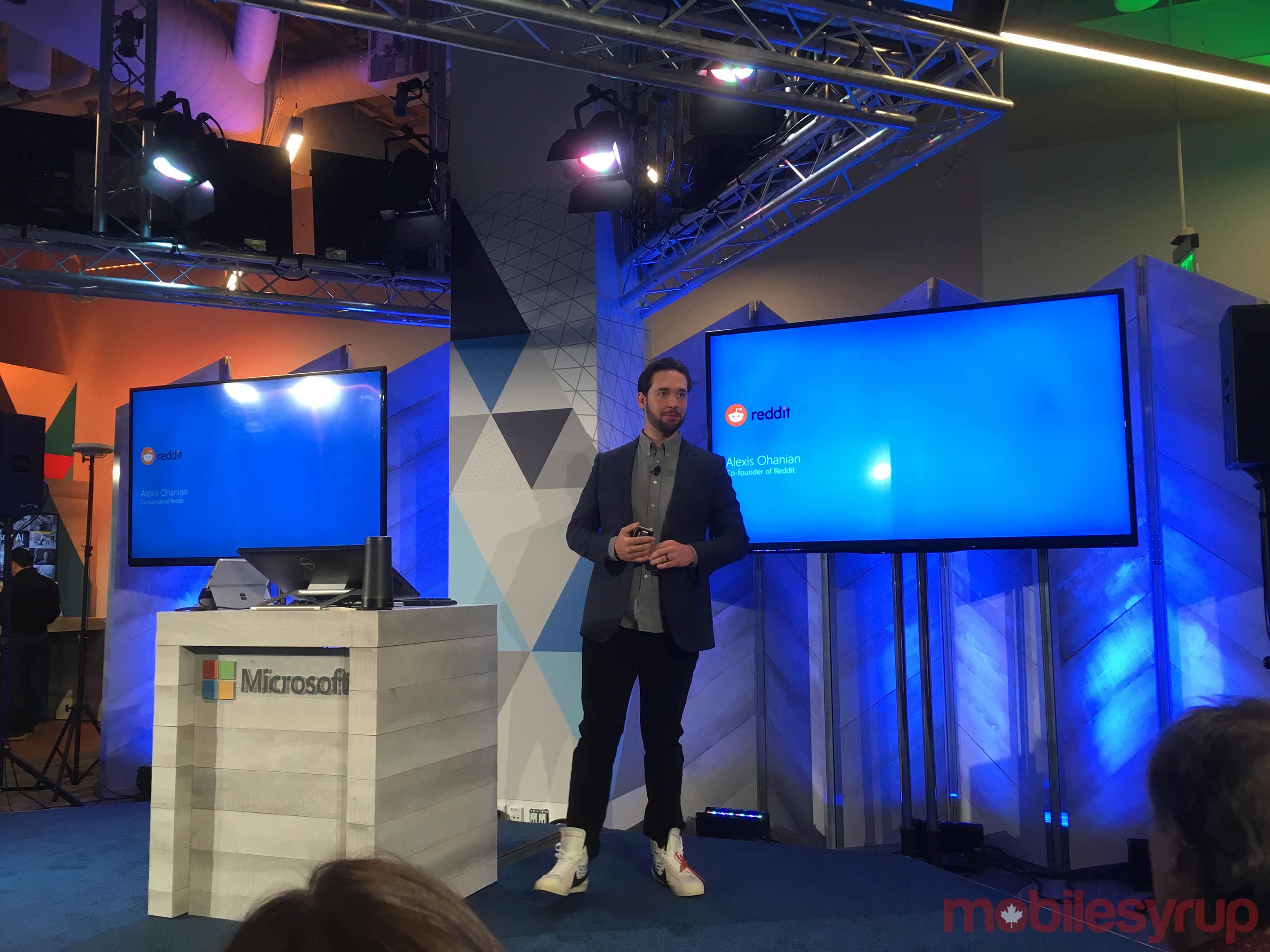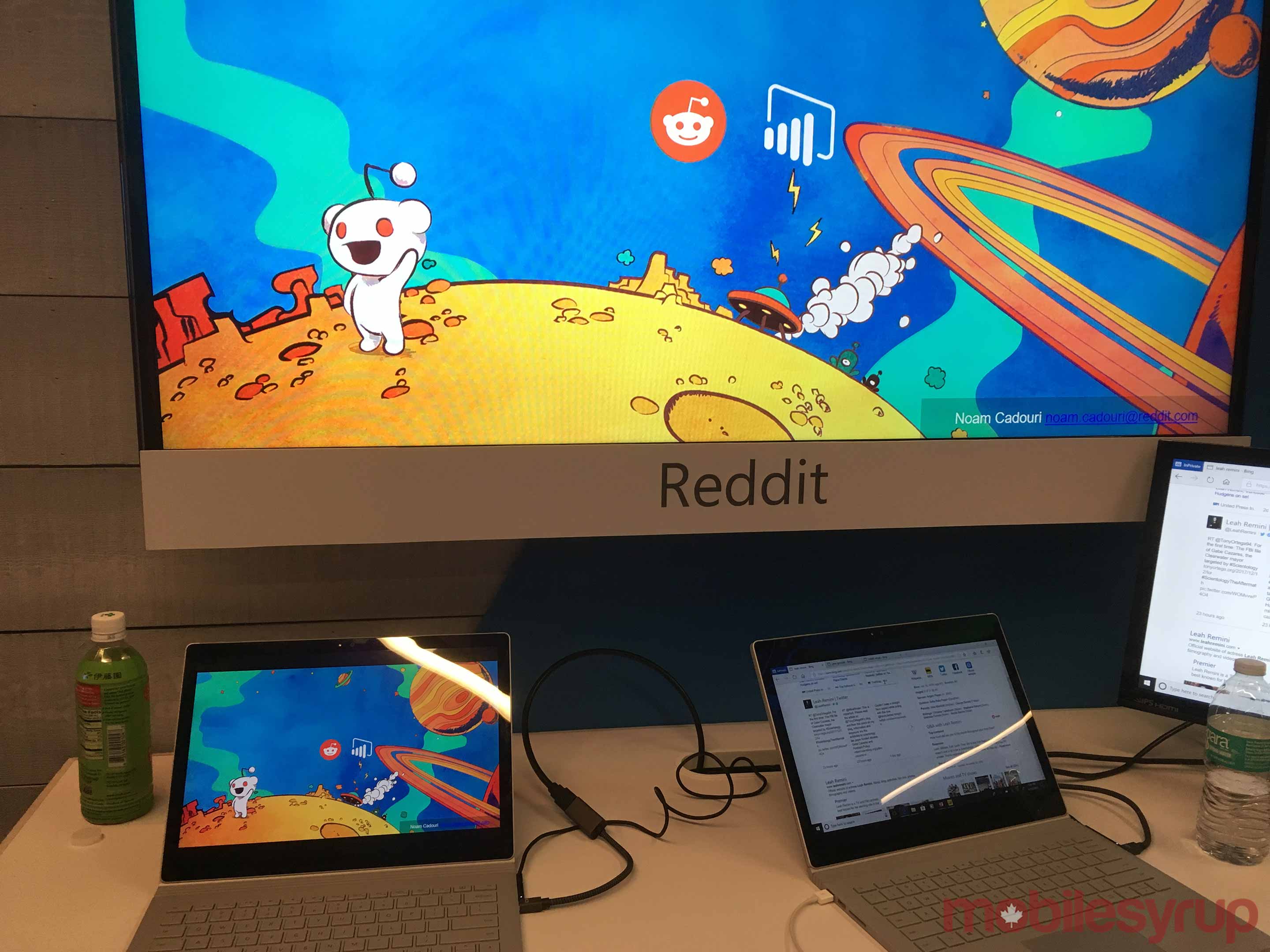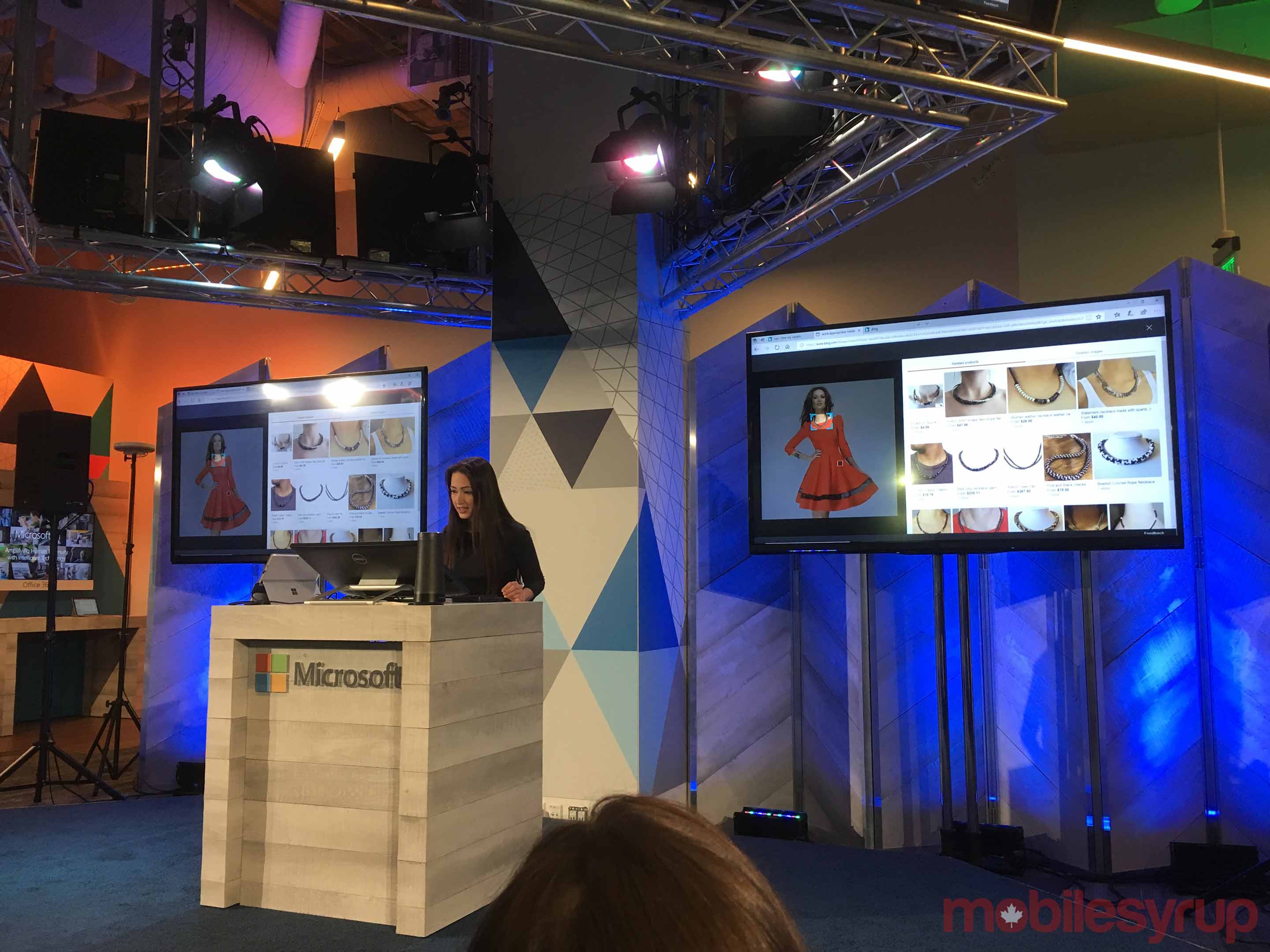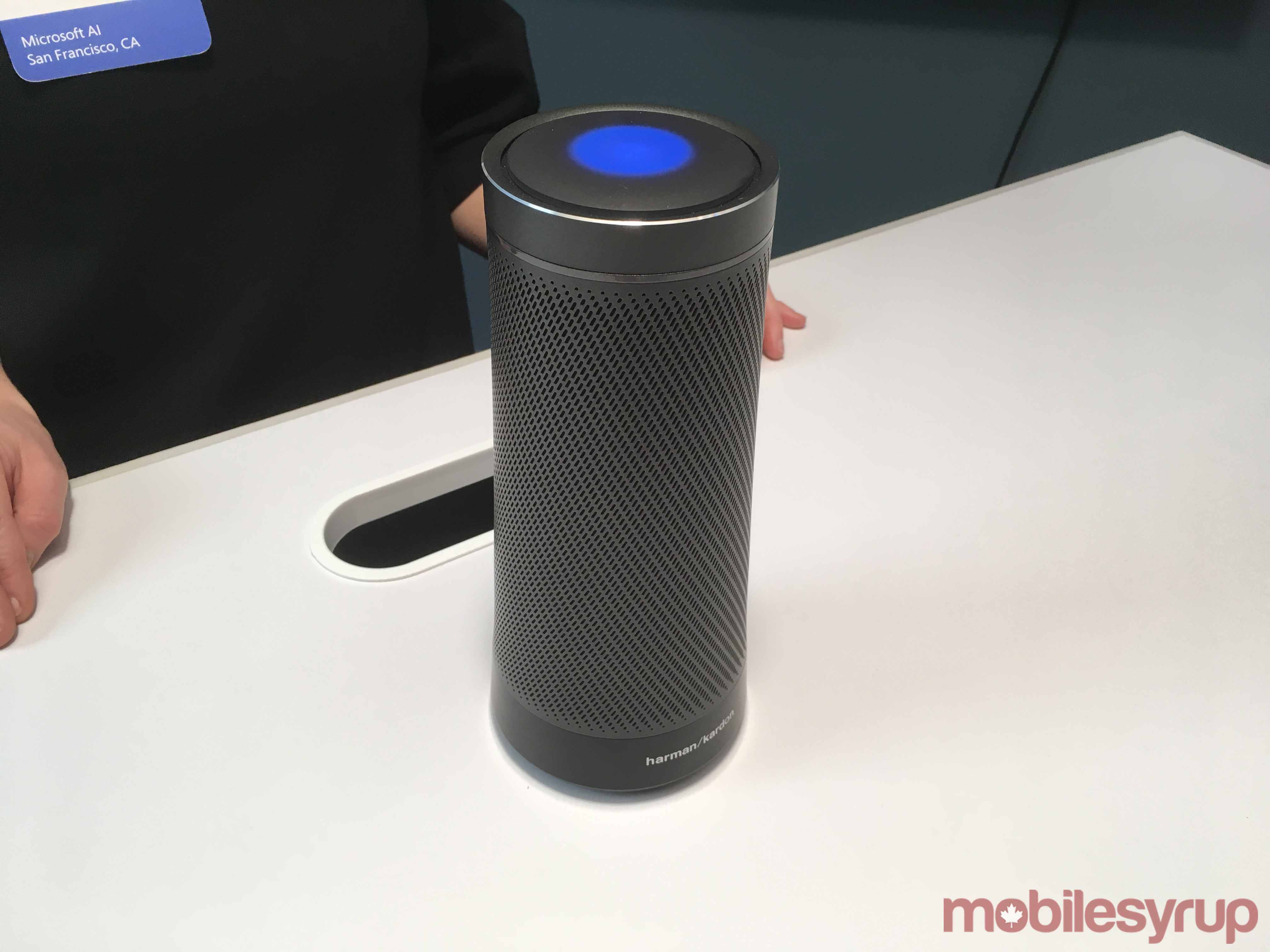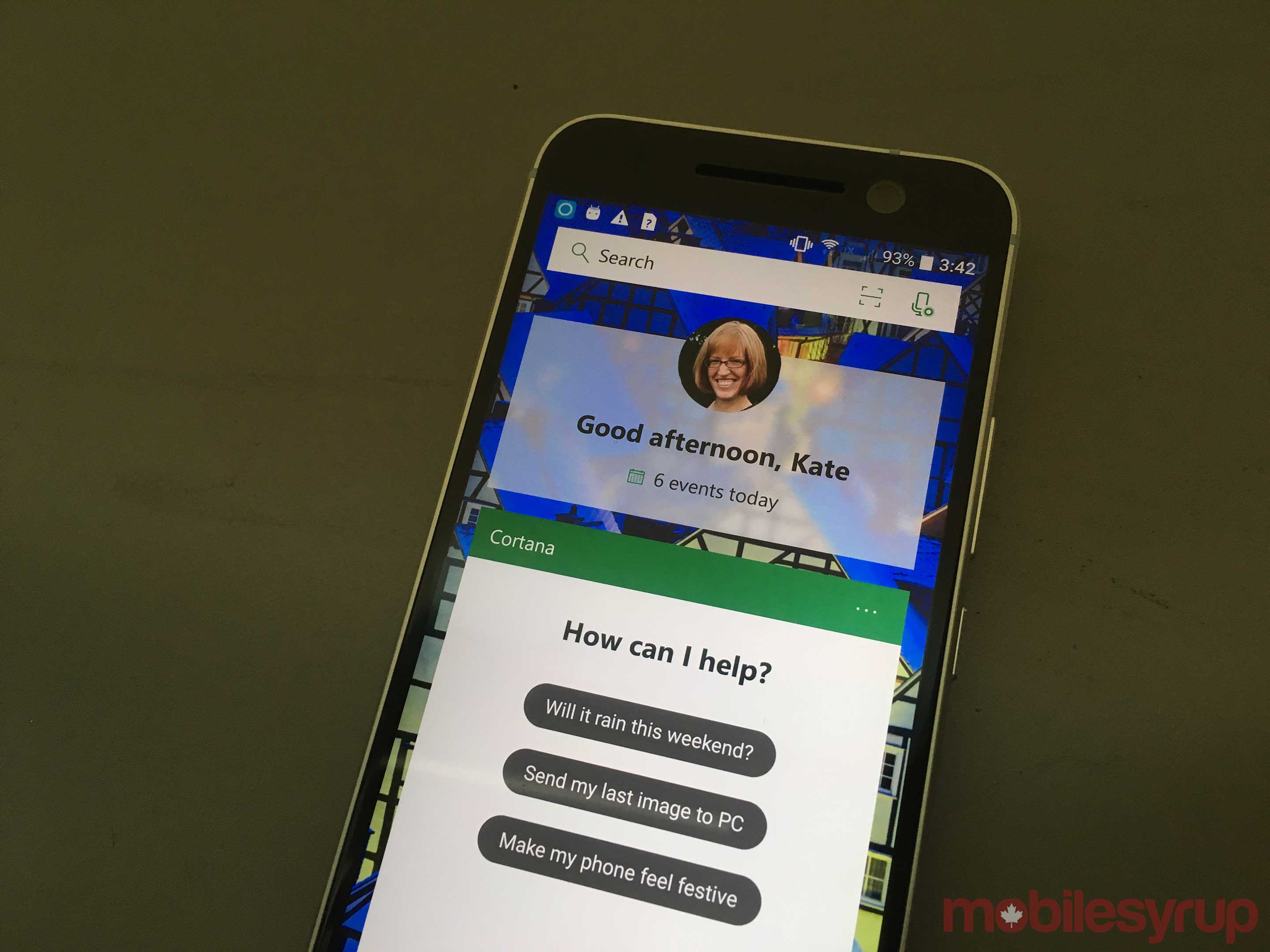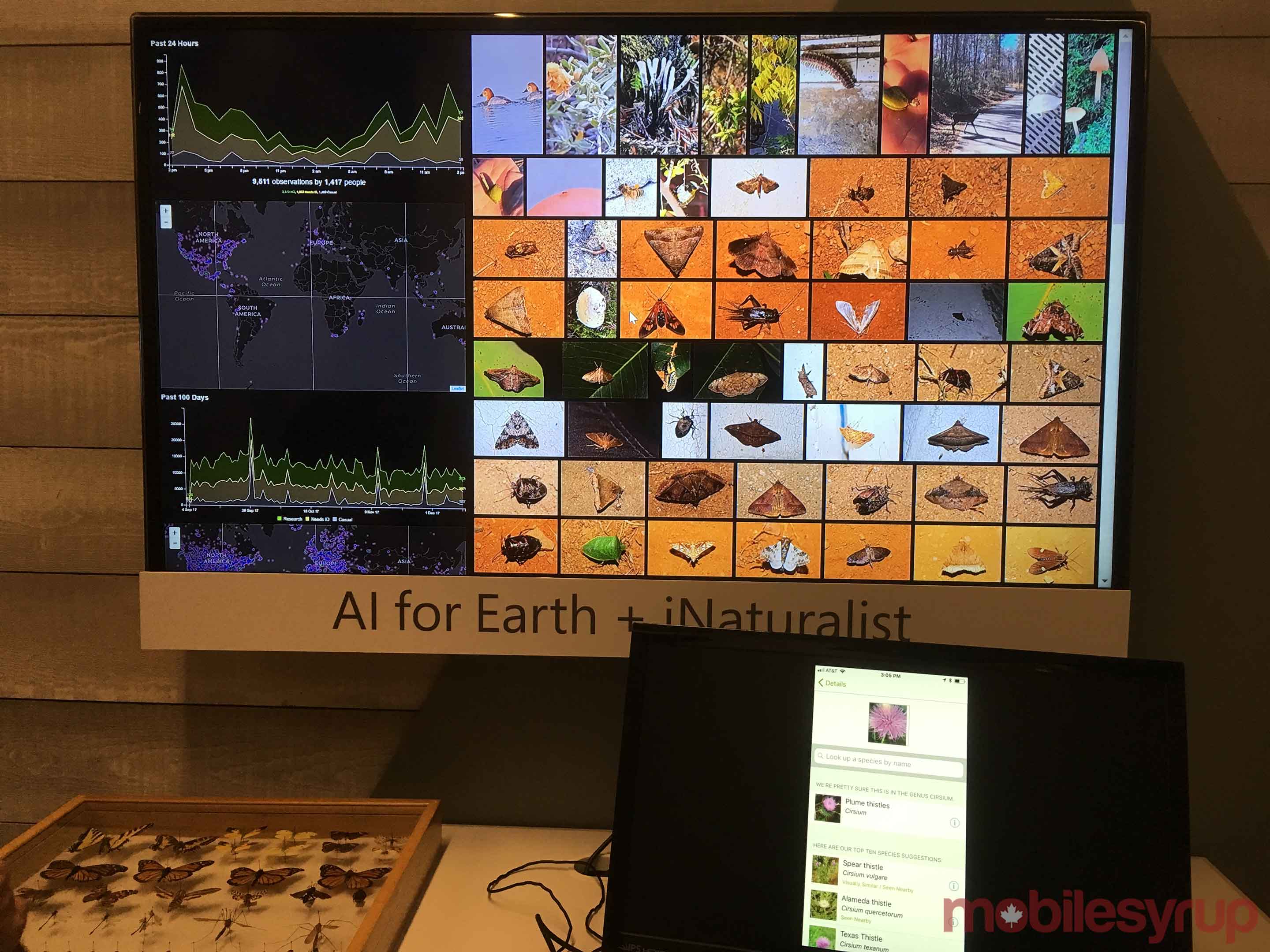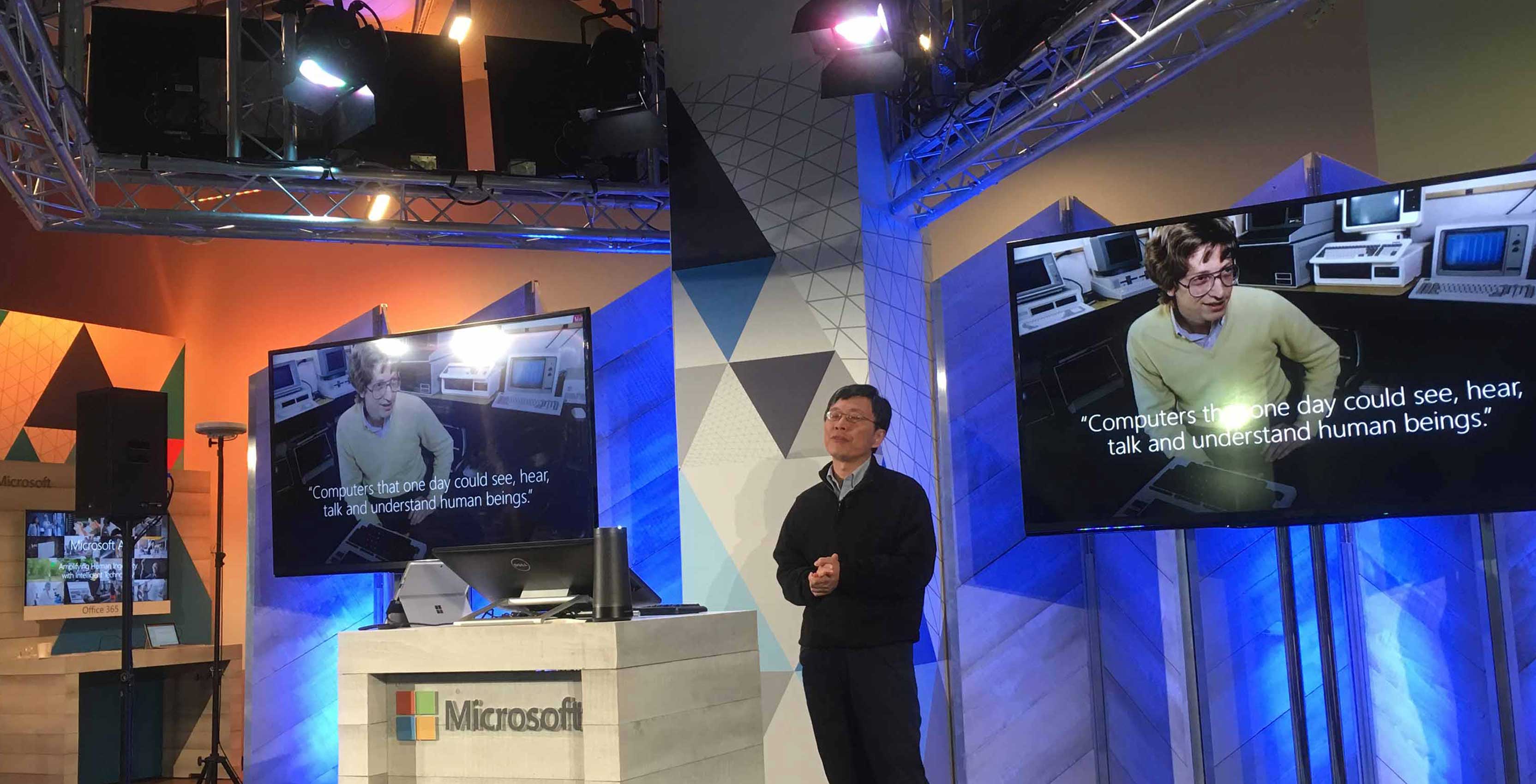
Microsoft is betting big on artificial intelligence. Between its Azure cloud service, Cortana virtual assistant, Bing search engine and the like, the Redmond, Washington-based tech giant has invested millions into fostering the growth of AI tech. To demonstrate these efforts, the company held a media event in San Francisco, to showcase how their products and services are improved through AI integration.
“We believe that AI comes down to one thing — people,” said Harry Shum, executive vice president of artificial intelligence & research at Microsoft. “AI will amplify human ingenuity, making people the heroes and driving a healthy connection between humans and machines.”
According to Shum, Microsoft’s AI endeavours are centred around five key areas — AI investments, AI research, AI products (such as Bing or Cortana), infusing AI (into products like Microsoft Office 365), AI platform (cloud services like Azure) and AI business solutions (anything from healthcare and transportation to marketing and customer support).
By focusing their efforts in these ways, Microsoft hopes to offer a wide range of tools that will help people in their everyday lives.
Bing as the ultimate informational tool
Microsoft’s search engine powers one-third of PC search traffic in the U.S., making it the second biggest search engine after Google. With an ever-growing userbase, Microsoft plans to double down on expanding upon its search engine’s AI capabilities. “Bing has become the foundation for AI for our company,” Shum said. “It might just be bigger than we even think about.”
To increase Bing’s efficiency as a search engine, Microsoft has formed a new partnership with Reddit. The collaboration, which is said to be at least two years in the making, looks to to bring the vast pool of information that Reddit has to offer into Bing’s search results.
With a community of 330 million monthly active users and nearly three million daily comments across 370,000 daily posts, the companies feel that there is a large portion of the internet that until now has been left untapped by Bing’s search functionality.
“All of this amazing content is just sitting there, but as long as it is just on Reddit, we know a large audience is missing out,” said Reddit co-founder Alexis Ohanian. “[This partnership] is mutually beneficial — it’s helping bring in a new swath of internet users onto Reddit while also powering Bing search results using data that only Reddit has.”
For example, Ohanian mentioned the Reddit “Ask Me Anything” threads that have been used by such prominent figures as former U.S. president Barack Obama, renowned scientist Dr. Jane Goodall and Microsoft co-founder Bill Gates. When searching for people that have participated in AMAs, Bing will be able to pull in both previous and upcoming question threads for users to learn more about their desired search subjects.
Bringing in information from millions of Reddit users is part of Microsoft’s larger goal to have Bing offer “more rich and complete answers with a lot of perspective,” according to Kristina Behr, a manager of Microsoft’s Artificial Intelligence and Research group. “AI has come a long way in the ability to find information, but making sense of that information is the real challenge,” she said, citing a need for Bing to be able to offer greater context and wider reaching viewpoints.
As a demonstration of this, Behr took the audience through what a user’s regular day might look like when using Bing to help make informed decisions. To start, Behr wanted to find a movie to watch for the holidays, so she searched for “movies directed by Spielberg starring Tom Hanks.” In response, Bing pulled up a list of older movies such as Saving Private Ryan and Catch Me If You Can, to newer releases like Bridge of Spies and the upcoming The Post.
Next, to find something to eat that goes along with her vegan lifestyle, Behr began to research “facts about Kale.” In addition to displaying traditional search results, Bing also brought up three key facts at the top of page, with a useful summary and links to the sites that the information came from.
She also asked Bing “is kale good for you?” with the search engine bringing up a sort of table of articles detailing both pros and cons to the food item. The idea is to clearly offer multi-perspective answers, as opposed to listing a random assortment of articles that the user would need to sift through for extended periods of time.
“As Bing, what we want to do is we want to provide the best results from the overall web. We want to be able to find the answers and the results that are the most comprehensive, the most relevant and the most trustworthy,” said Jordi Ribas, Microsoft’s corporate vice president in charge of AI products. “Often people are seeking answers that go beyond something that is a mathematical equation. We want to be able to frame those opinions and articulate them in a way that’s also balanced and objective.”
Microsoft mentioned that this is Bing knowing the difference between questions that have definitive answers — like Alexander Hamilton being born on January 11th, 1757 — and more subjective queries, such as whether the modern “Hamilton” musical is good entertainment. These features are now available.
Cortana streamlines everyday tasks
Sometimes, though, it’s easier for users to just ask these kinds of questions verbally, rather than type them into a search engine. To that end, Microsoft has offered its Cortana virtual assistant for the past three years.
“Cortana is really designed for you to go across your work and life,” Shum said. “As you can imagine, the lines between work and life are really blurry.”
He mentioned how people can be bombarded with emails of both the personal and business variety. To that end, Cortana now has the ability to scan through multiple email accounts (such as one on Gmail and the other in Outlook) and summarize the most important ones accordingly, such as messages from a spouse or supervisor.
Cortana is also now packing a new feature known as “skill chaining.” In essence, Cortana will be able to understand which functions it will need to perform depending on what the user is asking — even if the person doesn’t necessarily explicitly say so.
For example, Cortana can open an e-mail from a friend named Rob asking to go to a Seattle Seahawks game and know to suggest adding the event to the calendar.
Using voice commands, Behr was able to tell Cortana to reply to his email and purchase tickets for the match, with Cortana offering top sites like Ticketmaster and Stubhub.
Once Behr’s plans were set, Cortana then pulled this information from Outlook to provide relevant event details in the phone’s push notifications section.
In Behr’s case, it told her she needed to meet her friend Rob at the Seattle stadium for the game at 5:04pm — a trip that would take approximately 24 minutes on certain highlighted routes, according to information Cortana found on Bing. Cortana skill-chaining is now available, while the new e-mail features are set to roll out next month.
Understanding risk
While AI evidently has a wide variety of applications, the technology is also not without its skeptics. Back in July, Tesla co-founder Elon Musk said that he believes AI poses “a fundamental risk to the existence of civilization.” Musk argued that robots will continue to become smarter until they are able to outthink humans.
Similarly, ethicists have expressed concerns that while AI-powered machines may be able to perform tasks more efficiently, technology by its very non-sentient nature is unable to determine what is commonly accepted as ‘moral.’
To that end, Shum took a minute during the presentation to stress that Microsoft is being very careful when working with AI technology. “As we embrace this AI frontier, we have to acknowledge that concerns about AI do exist,” Shum admitted. “It’s important that we have universal AI design practices and values. We [must] take an ethical approach to AI design.”
Shum pointed to Microsoft’s role in co-founding the non-profit organization Partnership on AI in September 2016 alongside Amazon, Facebook, Google and IBM. The consortium works alongside experts across the globe to collectively determine best practices and ethics regarding working with AI.
Shum also wanted to emphasize some of the ways AI can be used benevolently to make a meaningful impact. He referred to Microsoft’s Seeing AI, an app released in July that uses artificial intelligence to recognize objects, people and other things in an environment and relays them to the user through audio descriptors. Shum also cited the $50 million Microsoft pledged this week to invest into AI for Earth, which, according to a statement from company president Brad Smith, will go towards “put[ting] artificial intelligence technology in the hands of individuals and organizations around the world who are working to protect our planet.”
One such organization is iNaturalist, a citizen science project and online social network that aims to help map and share observations on biodiversity by collecting data on animals, insects and plants. Using an app, naturalists can scan living organisms in the wild to learn more about them and help build iNaturalist’s data records.
Other groups that benefit from AI for Earth include the Norway-based Agder Energi, a utility that leverages Microsoft’s cloud and AI to better capture and analyze data from across its electrical grid, and the Tasmanian ag-tech company, which uses AI to monitor real-time weather data and manage their water use accordingly.
While Shum admits that there is more that society needs to see and learn about AI, he ultimately thinks that the potential of the technology is what should be considered above all. “What we do know is AI has a lot of potential to really improve lives,” he said. “It’s already happening now — giving voices to those who would otherwise have none.”
MobileSyrup may earn a commission from purchases made via our links, which helps fund the journalism we provide free on our website. These links do not influence our editorial content. Support us here.

